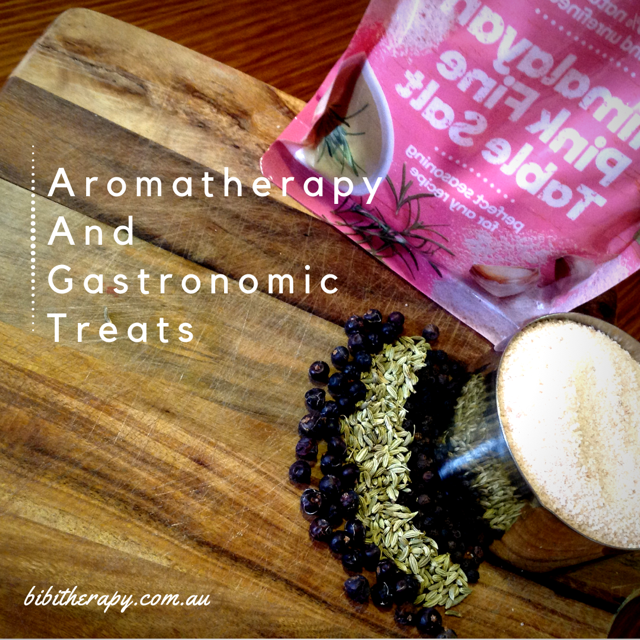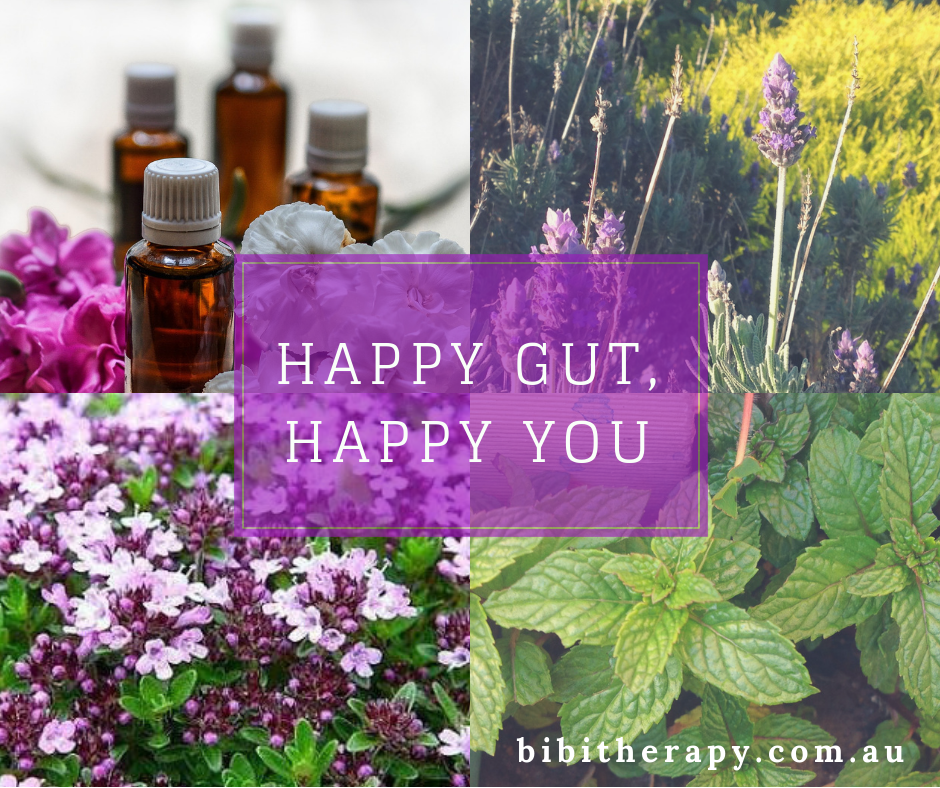Three Gentle Ways for a Life of Great Health
Because it is summer and the last couple of days were a bit hot here in Melbourne, I will dwell a little on the connection between Aromatherapy and Gastronomy. I encourage the exploration of gentle and safe available options using culinary essential oils. As always, this blog is for education only and I strongly encourage consultation with a therapist trained in the specific protocols related to the use of essential oils internally. Be safe first, everything else will follow naturally. If in doubt you are always welcome to contact BIBI Therapy with your enquiries.
Imagination is the only limitation when it comes to harnessing the essential oils benefits to not only enhance the culinary delights you might create, but also to have great health benefits. I will share three of my absolute favourite: Black pepper, Fennel and Juniper berries.
| The oil | How it works |
| Black Pepper Piper Nigrum |
This spice has been linked to
gastronomic delight for millennia. Not only it enhances
gastrointestinal functionality while boosting nutrients absorption
but its rich phytochemistry provides physiological benefits in
cognitive brain functioning. (Butt, M et al 2013).
Constipation : Abdominal
massage ( Buckle, 2003), stimulates the colon and gets the
stagnant build up moving again (Turan and Ast, 2016);
|
|
Fennel Foeniculum vulgare
|
Fennel was valued by ancient
Chinese, Egyptians as well as Romans. The common denominator the
belief that it conveyed longevity, courage and strength. Fennel
seeds have also been used for hundreds of years as a digestive
aid.
Fennel essential oil has long been
used as an appetite suppressant and is believed by some to help
with weight loss. It is beneficial for the digestive system and is
believed to be a tonic for fatigue. It is also one of the best
detoxifying essential oils and is much used in lymphatic drainage
massage.
Irritable bowel
syndrome(Portincasa et al, 2016): Abdominal massage
with diluted oil or taken internally (1-2 drops) in a favourite
smoothie
Alcohol poisoning: Fennel
can be taken internally in the form of tea decoction ;
Additional information on safe use
can be found following the
link.
Not to be taken in
pregnancy or lactation.
|
| Juniper berries Juniperus communis |
Known for its flavouring qualities
of famous spirits designated as gins. The many chemical components
existing in this balsamic pine scented oil make it very useful as
antiseptic diuretic, tonic as well as bactericidal and strong
fungicidal properties (Pepeljnjak et al, 2005).
Can provide effective relief
from bloating (Bouyahyaoui et al 2016)
|
My preferred way is to use them in a flavoured salt with wither the oils or the actual spices: Metabolism Enhancing Detoxifying Flavoured Salt
Here is how to make it: two drops from each of the essential oils (Black pepper, Fennel and Juniper) mixed with 100 g salt (Himalayan Pin, Celtic Gray, Sea salt etc). If you prefer grounding the actual spices you might like the following ratio: one table spoon Fennel seeds, one table spoon of Black pepper and juniper berries. De gustibus non disputandum est, along the line with in matter of taste there can be no disputes.
CAUTION!!! It is important to be aware that any of the oils described here are very powerful and should only be used in very small quantities. Avoid using them if pregnant or if you undergo chemotherapy as the components in these oils interact with the treatment; consult your natural therapist or doctor.
Wishing you a great green time this March 2019.
Precautions
- The use of any oil should not replace any prescribed course of treatment. If you have a sensitive skin, make sure you conduct a patch test before you splash essential oils on your skin;
- Always dilute the essential oils, ratio of 2-3 drops with a teaspoon of carrier oil of your choice and
- remember to check with a practitioner who specialises in aromatherapy before attempting to use any essential oil. This is especially important if you are pregnant, nursing or undertaking any special medication including homeopathic medication.
Sources
Buckle, J.,Clinical Aromatherapy. 2003; 20: 310, One of the simplest and most gentle ways to ease constipation is through abdominal massage using essential oils.
Butt, MS et al Crit Rev Food Sci Nutr. Black pepper and health claims: a comprehensive treatise. 2013; 53(9): 875-886; https://www.ncbi.nlm.nih.gov/pubmed/23768180
Pepeljnjak S, et al, Antimicrobial activity of juniper berry essential oil (Juniperus communis L., Cupressaceae). 2005; 55(4):417-422; https://www.ncbi.nlm.nih.gov/pubmed/16375831
Portincasa P et al, J Gastrointestin. Liver Dis, Curcumin and Fennel Essential Oil Improve Symptoms and Quality of Life in Patients with Irritable Bowel Syndrome, 2016; 25(2)151-157 ; https://www.ncbi.nlm.nih.gov/pubmed/27308645


